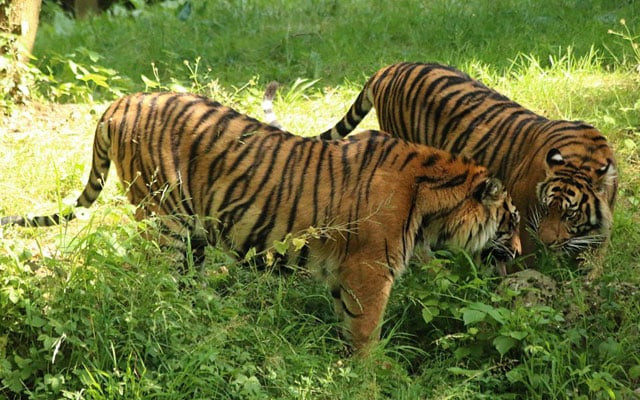‘Big cats may become more dangerous’
Concerns arise following citizen’s death in Bahawalpur Zoo

Wildlife experts have raised concerns that lions, tigers and other predatory animals in zoos may become more dangerous and attack zookeepers if they get a taste for human meat and blood. When lions and tigers become hungry, they have the ability to attack anyone.
Following the gruesome death of a citizen in Bahawalpur Zoo’s tiger cage last week, caretakers and zookeepers have been instructed to be cautious in the future. According to wildlife experts, there is a higher risk that big cats will attack humans, even their caretakers, if they have tasted the human flesh.
Read Father of zoo victim challenges admin’s narrative
A young man had previously been mauled to death by lions in Lahore’s Safari Park in 2020 after he allegedly jumped into the safari jungle to cut grass. In November 1999, an Asian black bear mauled an 18-month-old child to death inside a cage in Lahore Zoo.
Senior Veterinary Officer Punjab Wildlife Dr Rizwan Khan told Express News that when they are hungry, all carnivorous animals, including tigers and lions, have the natural tendency to attack other animals.
The majority of tigers and lions housed in zoos are born in captivity and have only ever eaten the meat provided to them. However, they naturally acquire a new taste after consuming human flesh and there is a chance they might attack any human, including their own keeper. Big cats typically attack when they are starved, a sentiment echoed by Deputy Director of Punjab Wildlife Multan Sheikh Muhammad Zahid.
Read more Father of zoo victim says son was not an addict
He said a lion that consumes a lot of meat sleeps between 17 and 18 hours a day. However, if they are hungry they will attack humans, regardless of whether or not they raised them. Although there have been no reports of such an incident in Pakistan thus far, there have been many cases worldwide where big cats have mauled and eaten their keepers and owners.
Published in The Express Tribune, December 14th, 2023.



















COMMENTS
Comments are moderated and generally will be posted if they are on-topic and not abusive.
For more information, please see our Comments FAQ